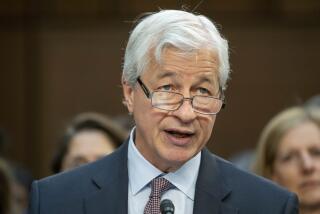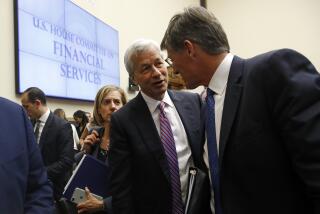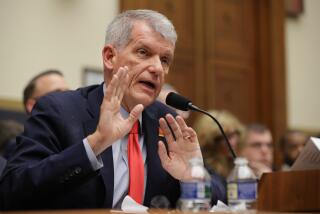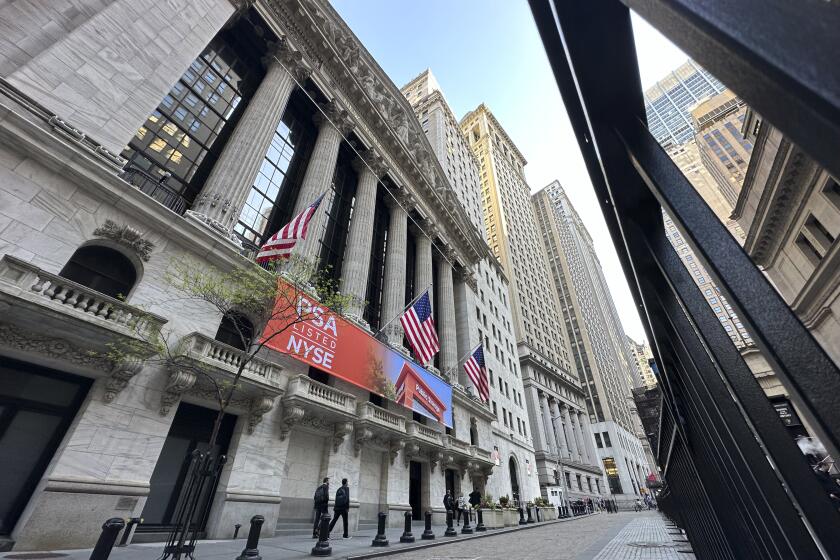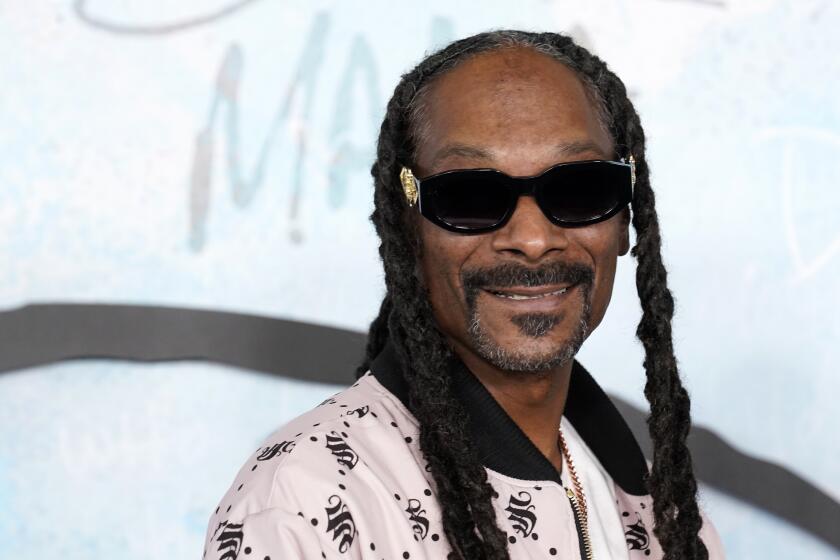JPMorgan CEO Jamie Dimon keeps chairman’s job in shareholder vote
TAMPA, Fla. — After surviving a push to oust him as chairman, embattled JPMorgan Chase & Co. Chief Executive Jamie Dimon now faces a Justice Department probe into how the bank lost $2 billion from risky trades.
The investigation, being handled by the FBI’s financial crimes squad in New York, is still at a preliminary stage. But it adds to mounting scrutiny into the bank’s global trading business, which already is the target of inquiries by the Federal Reserve and the Securities and Exchange Commission.
Dimon continued to apologize Tuesday for the trading blunder during the company’s annual meeting, held inside a tightly secured office complex in Tampa. He faced little acrimony from an audience that included employees of the bank.
“This should never have happened,” Dimon told them. “I can’t justify it. Unfortunately the mistakes were self-inflicted.”
But investors still sent a message to Dimon — 40% of the bank’s shareholders backed a proposal to appoint an independent chairman. Although the measure lost, it was an unexpectedly high amount for an executive once dubbed “the king of Wall Street.”
Peter Skillern, executive director of the community advocacy group Reinvestment Partners, said Dimon had been “an exceptional leader.” But he voted his group’s shares in favor of stripping Dimon of the chairmanship.
“There’s a conflict of interest. There’s a lack of independent supervision,” Skillern said. “You can’t be your own boss.”
About a dozen shareholders spoke during the hourlong meeting, which was guarded by sheriff’s deputies and private security guards. There were few protesters outside.
Dimon faced questions and proposals from shareholders about a variety of issues, including problems with JPMorgan’s servicing of mortgages and whether the bank would cut its dividend or avoid doing business with companies connected to genocide.
Larry Evanoff, 54, a retiree from Tampa, said in an interview that he was concerned “about what controls are in place to prevent an incident like this from happening in the future.”
“It seems like the risk management [unit] at some level would have brought this to someone’s attention” earlier, Evanoff said.
There were also concerns about the 12% plunge in JPMorgan’s stock value after the bank announced the losses Thursday. Shares recovered somewhat Tuesday, rising 45 cents, or 1.3%, to $36.24.
Dimon met with well-wishers after the meeting, telling one, “I’m doing the best I can — thank you.” He gave few new details about the trading losses that have stained the career of a man previously known for being a tough risk manager who navigated JPMorgan through the financial crisis relatively unscathed.
He declined to discuss how much the bank might still lose from troubled investments. “We’re not going to talk about that,” Dimon said.
However, he did say the bank would consider clawing back the salaries of those responsible for wrong-way derivatives trades that have rekindled fears of excessive risk taking on Wall Street.
“We will do the right thing when in fact we know what the right thing to do is,” Dimon said in response to The Times’ query before his aides spirited him out of the conference. “We’ll take all proper corrective action, and that may very well include clawbacks.”
The bank also declined to comment about the investigations that it now faces.
Nobody at JPMorgan has been accused of wrongdoing at this point in the investigations.
Investigators are expected to look into the bank’s accounting practices and how it dealt with disclosing the trades that led to losses. Public companies are required by regulators to tell shareholders when big losses might affect the company.
Treasury SecretaryTimothy F. Geithneron Tuesday called the loss a “failure of risk management.”
“The Fed and the SEC and the other regulators — and we’ll be part of this process — are going to take a very careful look at this incident, of course, and make sure that we review the implications of what that means for the design of these remaining rules,” Geithner said.
The ability of JPMorgan and the financial system to withstand the loss showed that reforms put in place after the 2008 financial crisis have worked, particularly the requirement for banks to hold more cash in reserve, Geithner said during an appearance at the Peter G. Peterson Foundation’s 2012 Fiscal Summit in Washington.
But the huge loss by the nation’s largest bank highlighted the need for tough implementation of the so-called Volcker Rule on proprietary trading and other rules that regulators are still finalizing.
“We are going to work very hard to ensure that these reforms are tough and effective, not just the Volcker Rule, but the broader compliment of reforms on capital and liquidity,” Geithner said.
Dimon noted during the annual meeting that he supports 70% to 80% of the Dodd-Frank financial overhaul law’s provisions. JPMorgan wants “strong, simple, good regulation,” he said.
That didn’t satisfy some shareholders at the meeting. Father Seamus Finn, a board member of the New York-based Interfaith Center on Corporate Responsibility, told Dimon that the financial industry shouldn’t spend “millions of dollars” lobbying to soften regulations.
Finn said he believed it was “demoralizing and disappointing” after the 2008 financial meltdown.
“Four years later,” he said, “it’s time to put this crisis behind us.”
Serrano and Puzzanghera reported from Washington.
